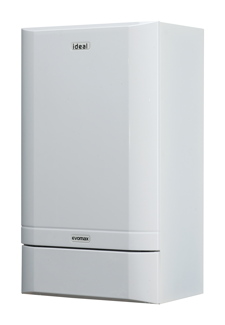Sweat your asset

Chris Caton offers advice on getting the most out of your boiler, highlighting some common commissioning and operation issues that building services professionals should bear in mind for better long-term performance.
A modern commercial boiler is extremely efficient and there are many savings to be had once installed, if managed correctly and regularly maintained. It’s commonplace, however, to find boilers that aren’t being used to their full potential. When you consider that the initial cost of installing a new boiler can often be recouped via significantly reduced fuel bills, this is a missed opportunity.
Although the chosen boilers may boast top class energy efficiency credentials, it is important to consider other factors that could affect its efficiency. It’s accepted knowledge that modern boilers are far superior in terms of efficiency than their predecessors, so much so that after installation many don’t consider what else they could be doing to drive down costs and decrease fuel consumption.
Yet, there are a number of reasons why modern condensing boilers installed as a replacement for older standard efficiency boilers might not be performing at its optimum efficiency.
Old system, new boiler
In order to get the most out of your new condensing commercial boiler it’s vital to think in terms of the whole system. For example, it is counterproductive to install a new boiler into an existing system that contains debris and dirt. So-called dirty water is an inevitable consequence of an aging system, but if transferred into the new boiler it will affect its ability to run efficiently and can lead to boiler breakdowns and even failure. To overcome this, we encourage building services professionals to consider the process of water treatment. This will ensure the longevity of the boiler by protecting internal parts from corrosion and the build-up of scale over time.
 |
|
A new boiler is an investment that pays dividends with the right approach |
System separation should also be considered when introducing a new boiler to an existing system via a plate heat exchanger. This approach physically separates the boiler’s primary circuit from the potentially poor-quality water, providing protection without compromising performance. A plate heat exchanger works by transferring heat from the primary circuit to the second, without coming in direct contact. However, it is important to understand that a heat exchanger will only function at its peak efficiency when the water velocity passing through it is maintained within prescribed parameters, requiring accurate sizing of the plate heat exchanger before installation.
Use building controls
An important aspect of achieving efficiency in buildings is ensuring the end user knows how to control the system and is committed to keeping energy use low. Contemporary controls can do far more than switch boilers on and off according to time or temperature. They give the flexibility to manage when and where the heating system is used, avoiding heating circuits or zones which aren’t required at a given time or under certain circumstances, and allow the boiler to modulate effectively. This all combines to lower emissions and minimise waste, saving money while benefiting the environment.
In a mixed-use development with a central plant room and boiler arrangement, for example, controls can be deployed to differentiate the distribution of heat and hot water to different parts of the building. In this scenario, the differing demands of residential apartments (peak heat and DHW demand in the mornings and evenings) and retail units (typically modest demand during daytime) can be managed efficiently, again reducing fuel use.
Outdoor weather sensors can also add to the efficiency of boilers by controlling the heat output based on the temperature of the external environment. These should also be considered to maximise efficiency and minimise waste.
The efficient system
Once the new efficient boilers are installed, it is important that the heating system is then well-managed to truly sweat that asset. Routine inspection and preventative maintenance is essential to keeping boiler efficiency up and fuel costs down, and I’d also encourage end users to be educated to not overlook the simple stuff either. For example, it pays them to monitor their gas bills as they are a good indicator of the boilers’ efficiency. A new boiler installation should result in a decrease in fuel consumption, so if this isn’t the case, they may need to look at the system to ensure everything is running as it should be. We also advise building managers to regularly audit usage patterns in their building to ensure the system is configured to serve only those zones requiring heat.
Frequent maintenance
Regular servicing will ensure a boiler is running at its best but it’s also a critical requirement of most warranties. Many manufacturer warranties are reliant on an annual service from an accredited technician. For example, Ideal Commercial’s Evomax range of boilers come with a five-year warranty when commissioned by Ideal Commercial and serviced annually by an engineer who has attended one of the UK training centres for the free Evomax course. This approach encourages best practice to ensure that our products continue to operate as designed.
 |
|
A new boiler can be a valuable asset |
With servicing playing an important role throughout the life of the boiler installation, it is also important to consider the positioning of the boilers at the time of installation to ensure easy access.
Maintenance is also key for avoiding downtime due to mechanical breakdown. The consequences of downtime vary from building to building and can range from simple inconvenience to life threatening, and for many facilities managers operating to an SLA, failure can also have financial penalties. So, a wellsorted system is not just about delivering efficiencies, but also about avoiding penalties and maintaining good customer relations.
None of the above steps are expensive or complex to administer yet it’s surprisingly common to find comparatively new boilers that are not meeting their owner’s expectations, or suffering with issues as a result of poor commissioning or an inadequate management and maintenance strategy. An informed and proactive approach will ensure your new boiler investment stands the test of time, delivers efficiencies, and keeps your building serviced long into the future.
Chris Caton is product manager at Ideal Commercial Boilers







